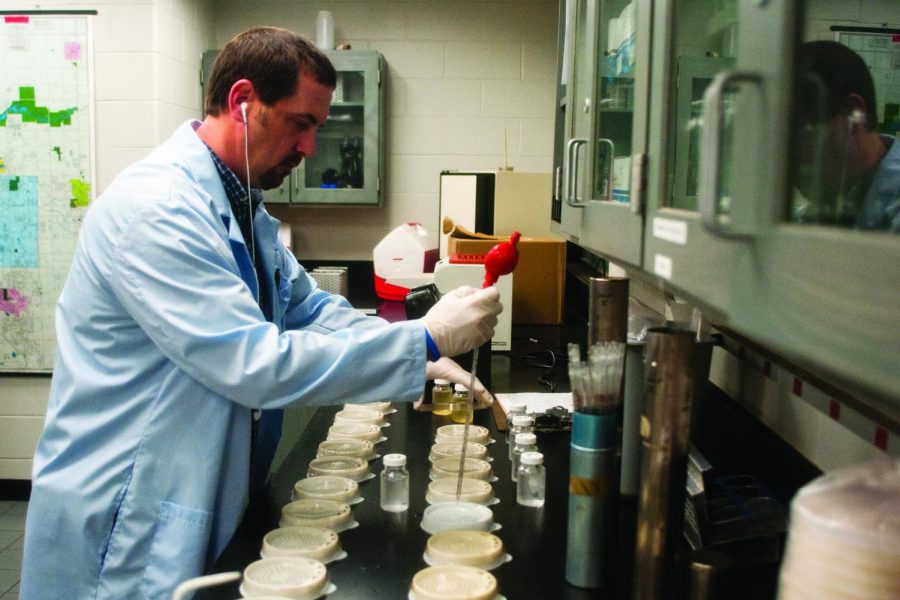28 CPS schools testing for lead in pilot program
CPS announced their lead testing pilot program on April 27, saying the test was done out of “an abundance of caution.”
May 9, 2016
Lead testing results for 28 Chicago public schools will be available in mid-May, indicating whether the schools’ water has been contaminated.
The testing is part of a pilot program that began the week of April 24 as a response to public concern about the lead pollution crisis in Flint, Michigan, according to an April 27 press release from the mayor’s office.
While there is no indication that lead is present in any CPS school, the pilot program is meant to ensure testing procedures are in place and the water in schools is safe, according to a CPS spokesman.
The tested schools span the city’s North and South sides, from Medgar Evers Elementary School, 9811 S. Wallace St., to Minnie Mars Jamieson Elementary School, 5650 N. Mozart St.
The testing schedule is based on criteria that include age of the school building, age of students—with priority being given to schools with pre-K programs—presence of a kitchen where meals are prepared and presence of pipes that could need replacement.
The testing was conducted by Oakbrook Terrace’s Suburban Labs, which is certified by the Illinois Environmental Protection Agency and Illinois Department of Public Health, according to the spokesman.
The CPS spokesman declined to answer questions about prior testing, whether the presence of lead could cause school closings and whether parents and teachers were notified of the testing prior to the announcement in the release.
“There’s not much trust in CPS at this point,” said Sarah Chambers, a special education teacher at Maria Saucedo Elementary Scholastic Academy, one of the schools being tested in the pilot program.
Chambers said her school experienced lots of remodeling last summer, but she was unsure of whether pipes in her school had been replaced.
She also expressed concern about the pending results from schools on the South and West sides, which have fewer resources available for the remodeling and replacing of any pipes.
In light of CPS budget cuts, Chambers also said she is worried about schools being closed rather than repaired if lead contamination is found.
“I don’t believe CPS will fix the problem or fix it adequately, and there’s some fear that if they find lead in certain schools, they may want to close them down,” Chambers said.
According to John Kugler, citywide field representative for the Chicago Teachers Union, teachers at the 28 pilot schools were not notified about the testing prior to the announcement in the press release.
“We read about it in the news like everybody else,” Krugler said. “We’re concerned about the safety of our staff, but we’re also concerned about the safety of our students.”
Chambers echoed Krugler’s remarks about parents and teachers being the last to know. She also said many teachers are hesitant about the testing and what will be done when the results are released, especially since CPS has not been transparent about lead testing in the past.
The press release states that schools’ test results will be available online but did not specify where the results would be posted. The release also states that if a school tests above the limits for lead, parents will be notified and CPS will supply water bottles and other accommodations while repairs are made.
According to the Mayo Clinic, some of the symptoms of lead poisoning in children can include developmental delays, learning difficulties and hearing loss.
According to a 2011–2012 study by the Environmental Protection Agency and the Chicago Department of Water Management, sites with disturbed service lines and low water use may have high lead levels for years, and the time required to flush water containing lead from taps was, in many cases, greater than the time the EPA recommends.
The U.S. EPA, in an May 6 emailed statement, said it supports the pilot lead testing program that CPS is conducting and that the tests can be used to identify where the lead is coming from.
“U.S. EPA hasn’t reviewed CPS’ testing plans but, in general, any testing being done in the schools is good,” the statement said. “These samples can be used to identify plumbing fixtures that may contain lead. In Flint, our scientists recommended more extensive testing, taking multiple samples at fixtures. This approach can help pinpoint where in fixtures and pipes any lead is coming from.”








